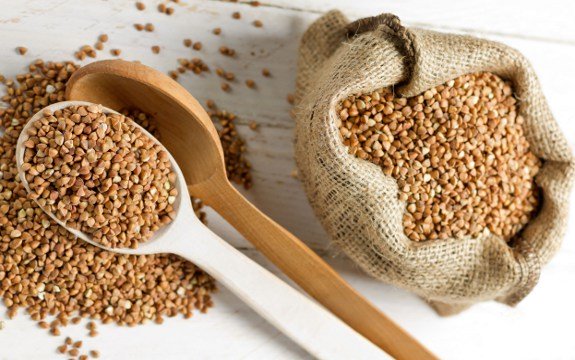Medical University: Single Flavanoid (Found in 6 Foods) Reduces Cognitive Impairment Drastically

 A singular flavanoid can protect the brain against cognitive deficit and other cellular damage, according to studies from the Fourth Military Medical University. The news comes from Xi’an, People’s Republic of China, and shows great promise for those suffering from mental impairment due to Alzheimer’s disease, vascular dementia, and other debilitating cognitive conditions.
A singular flavanoid can protect the brain against cognitive deficit and other cellular damage, according to studies from the Fourth Military Medical University. The news comes from Xi’an, People’s Republic of China, and shows great promise for those suffering from mental impairment due to Alzheimer’s disease, vascular dementia, and other debilitating cognitive conditions.
The study abstract concludes:
“Our results provide new insights into the pharmacological actions of rutin and suggest that rutin has multi-targeted therapeutical potential on cognitive deficits associated with conditions with chronic cerebral hypoperfusion such as vascular dementia and Alzheimer’s disease.”
Rutin is a biologically active flavonoid found in the following foods:
- Buckwheat – Possibly the best source of rutin, and much better than boiled oats, uncooked buckwheat leaf flower offers about 675 mg in a 1.1 cup serving. Uncooked buckwheat groats contain 230 mg of rutin per 1 kg, dark buckwheat flour has 218 mg per 1 kg and buckwheat noodles provide 78 mg.
- Elderflower Tea – When dried, the white flowers of the elderflower make a delicious and rutin-filled tea. According to the Czech Journal of Food Science, elderflower tea contains approximately 10.9g/kg of rutin per brewed cup.
- Amaranth Leaves – In Western cultures, most people are familiar with the edible seeds of amaranth, though in Chinese and Southeast Asian cooking the leaves are also gaining traction, partly due to their high rutin content. You can expect around 24.5g/kg from the dried leaves. Seeds only contain trace amounts of the important nutrient.
- Unpeeled Apples – Keep the peel on your apples to enjoy lots of rutin. Just be sure that they are organic, since apple peels are especially prone to pesticide build-up. Apple skins are 6x as powerful as the flesh at preventing high blood pressure due to this flavanoid, too.
- Unfermented Rooibos Tea – While rooibos tea contains fewer antioxidants than black or green teas, it is a good source of rutin, providing around 1.69 mg/g.
- Figs – These little gems contain about the same amount of rutin as apples, so be sure to add them to your diet.
Rutin protects the brain against several damaging effects through its antioxidant and anti-inflammatory properties, though its effect on cognitive deficits and brain damage caused by chronic cerebral hypoperfusion formerly remained unknown.
The scientists found that rutin works primarily through anti-inflammatory mechanisms, and reducing hypofusion in the brain.
The researchers stated:
“Chronic cerebral hypoperfusion is a critical causative factor for the development of cognitive decline and dementia in the elderly, which involves many pathophysiological processes. Consequently, inhibition of several pathophysiological pathways is an attractive therapeutic strategy for this disorder.”
The researchers used Sprague-Dawley rats with permanent bilateral common carotid artery occlusion (BCCAO), in their experiments, and after 12 weeks of being treated with rutin for its neuroprotective properties, they all excelled in behavioural tests, as well as biochemical and histopathological analyses.
“Moreover, BCCAO rats exhibited central cholinergic dysfunction, oxidative damage, inflammatory responses and neuronal damage in the cerebral cortex and hippocampus, compared with sham-operated rats. All these effects were significantly alleviated by treatment with rutin.”
